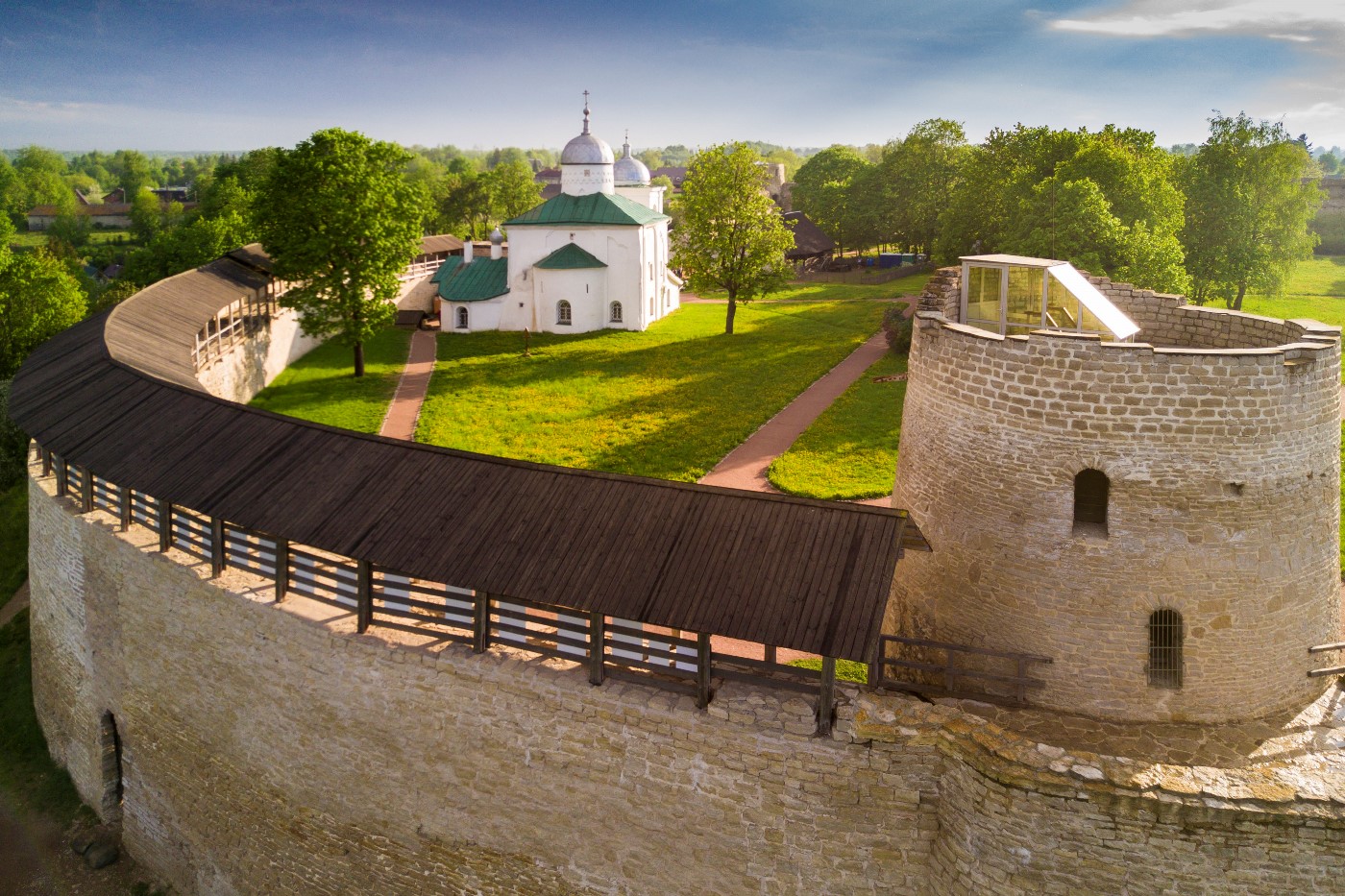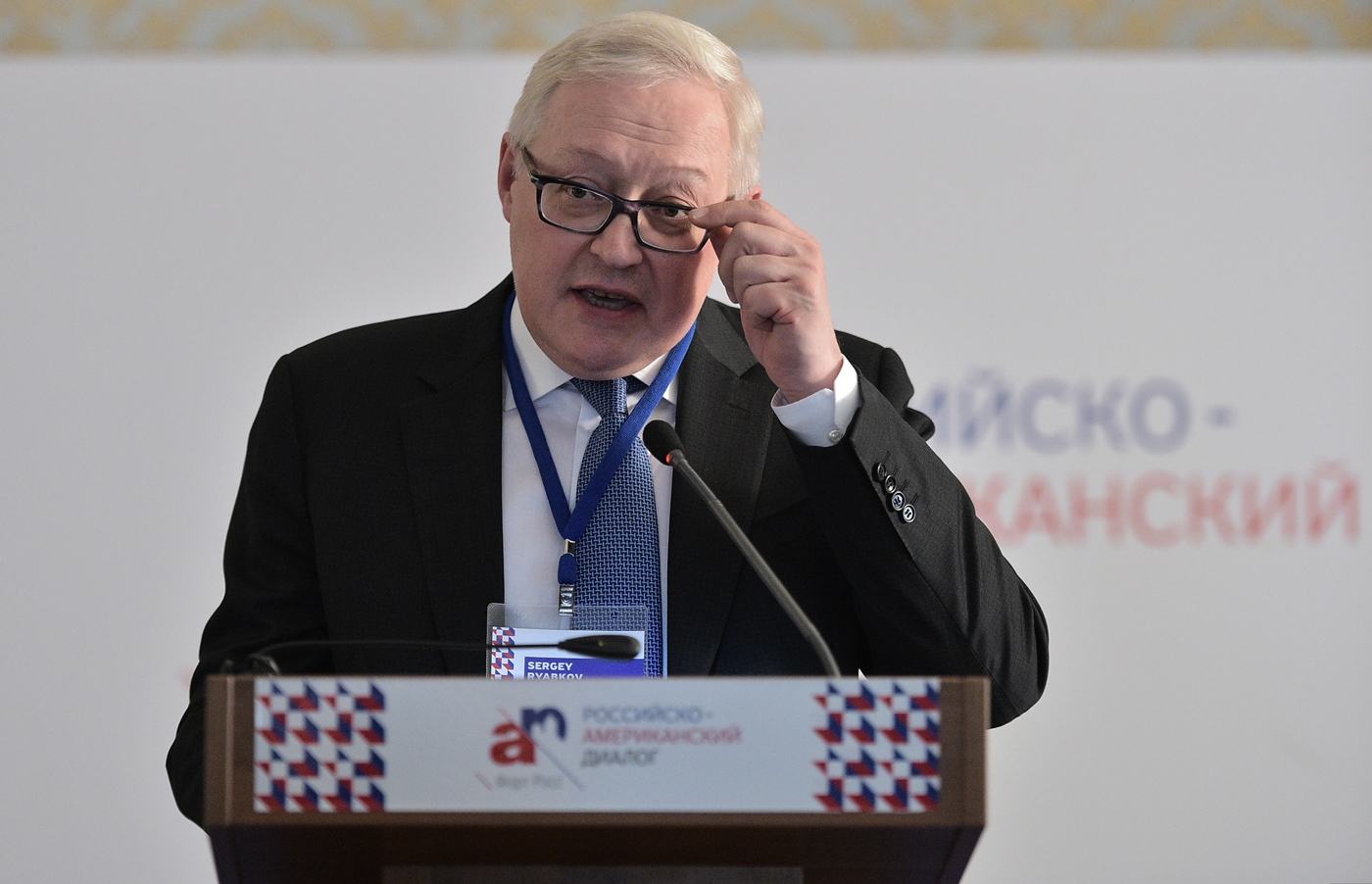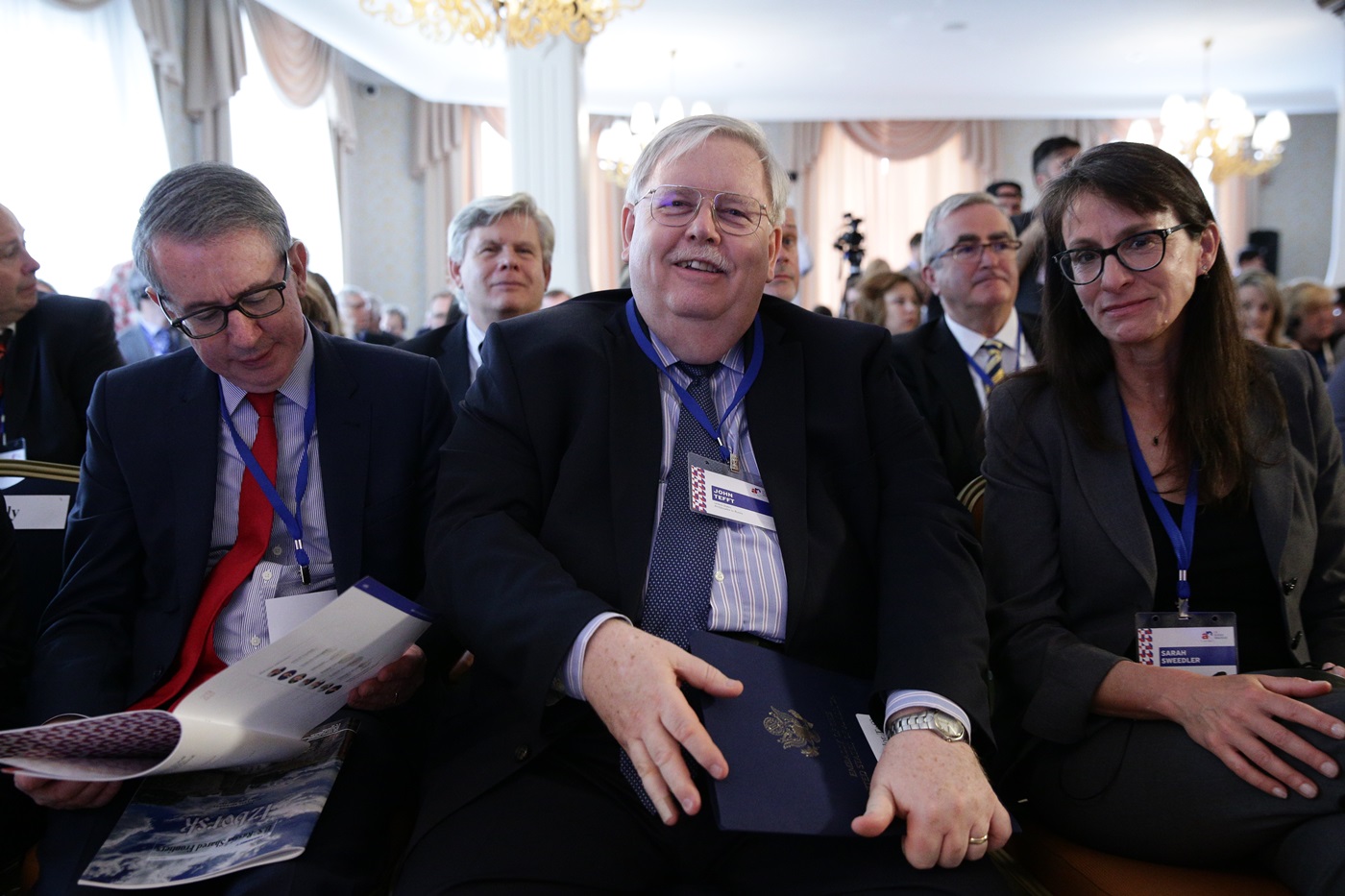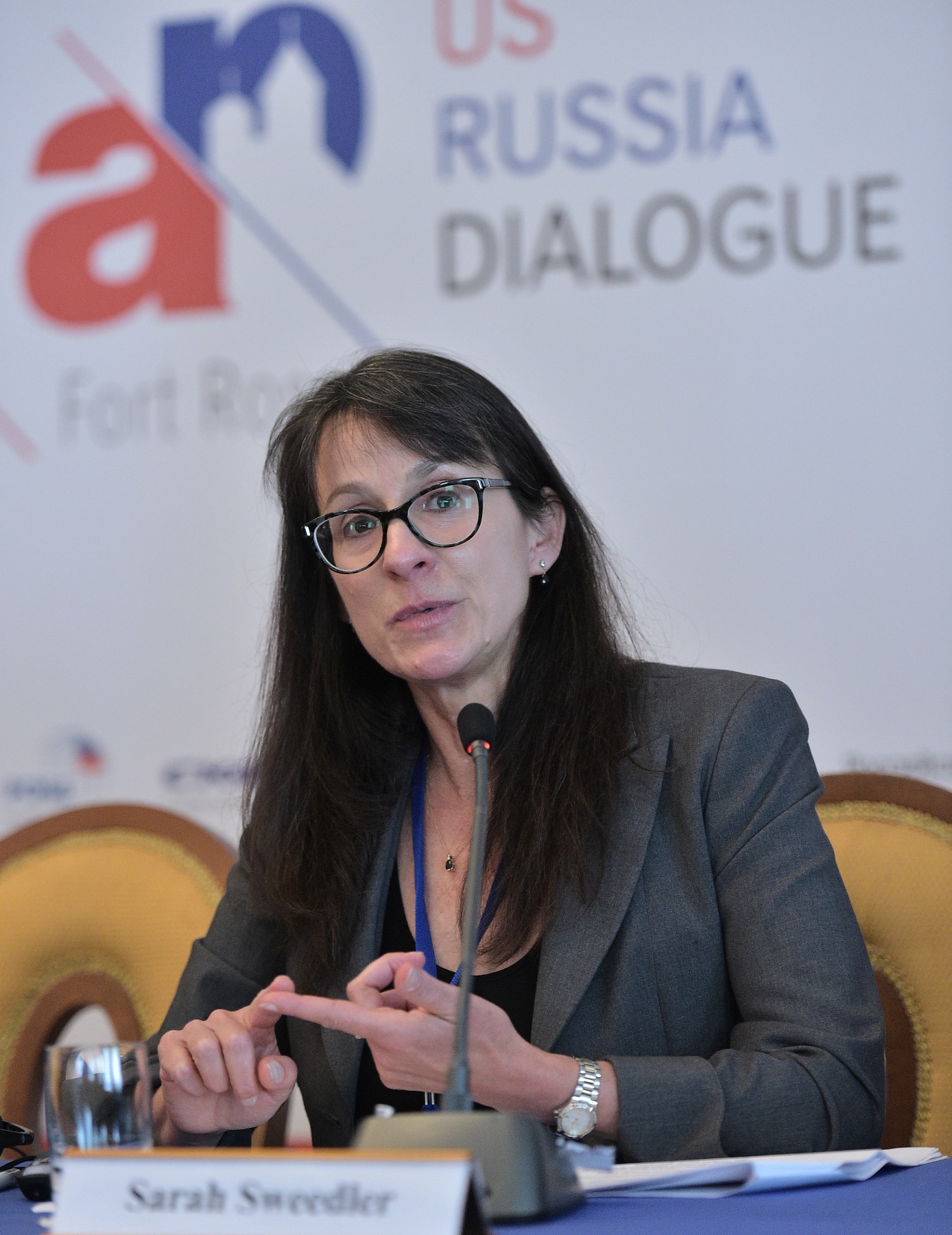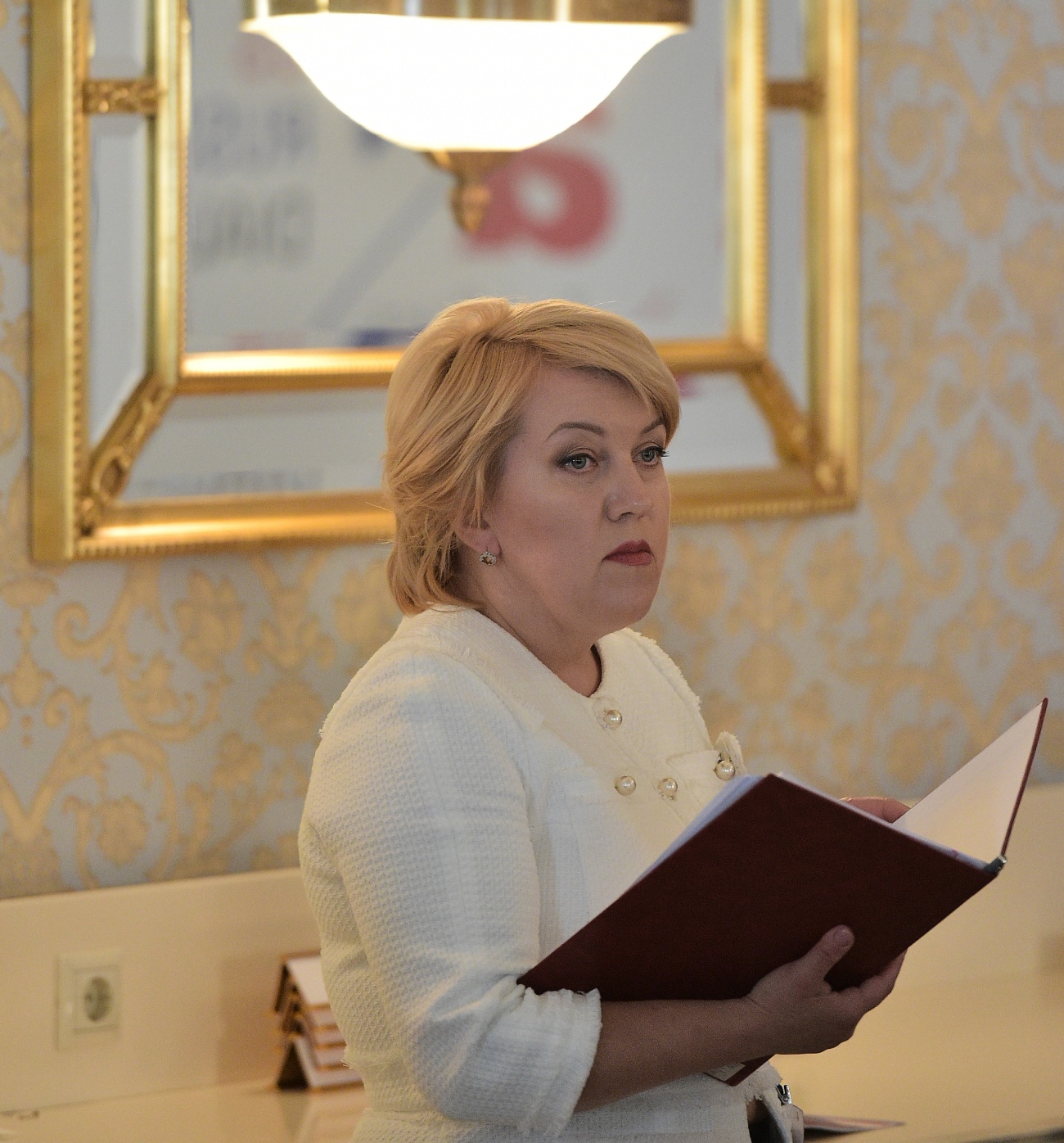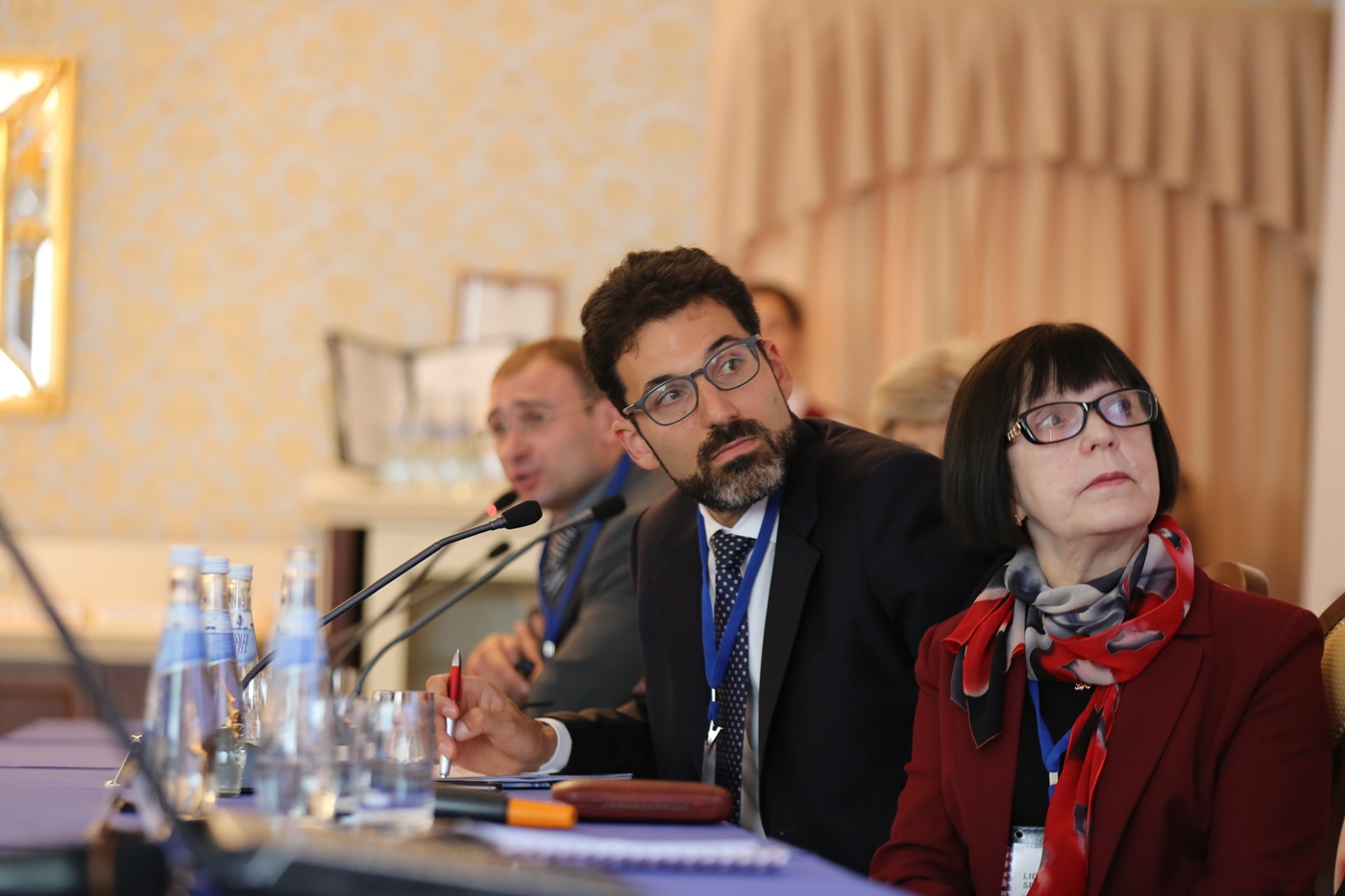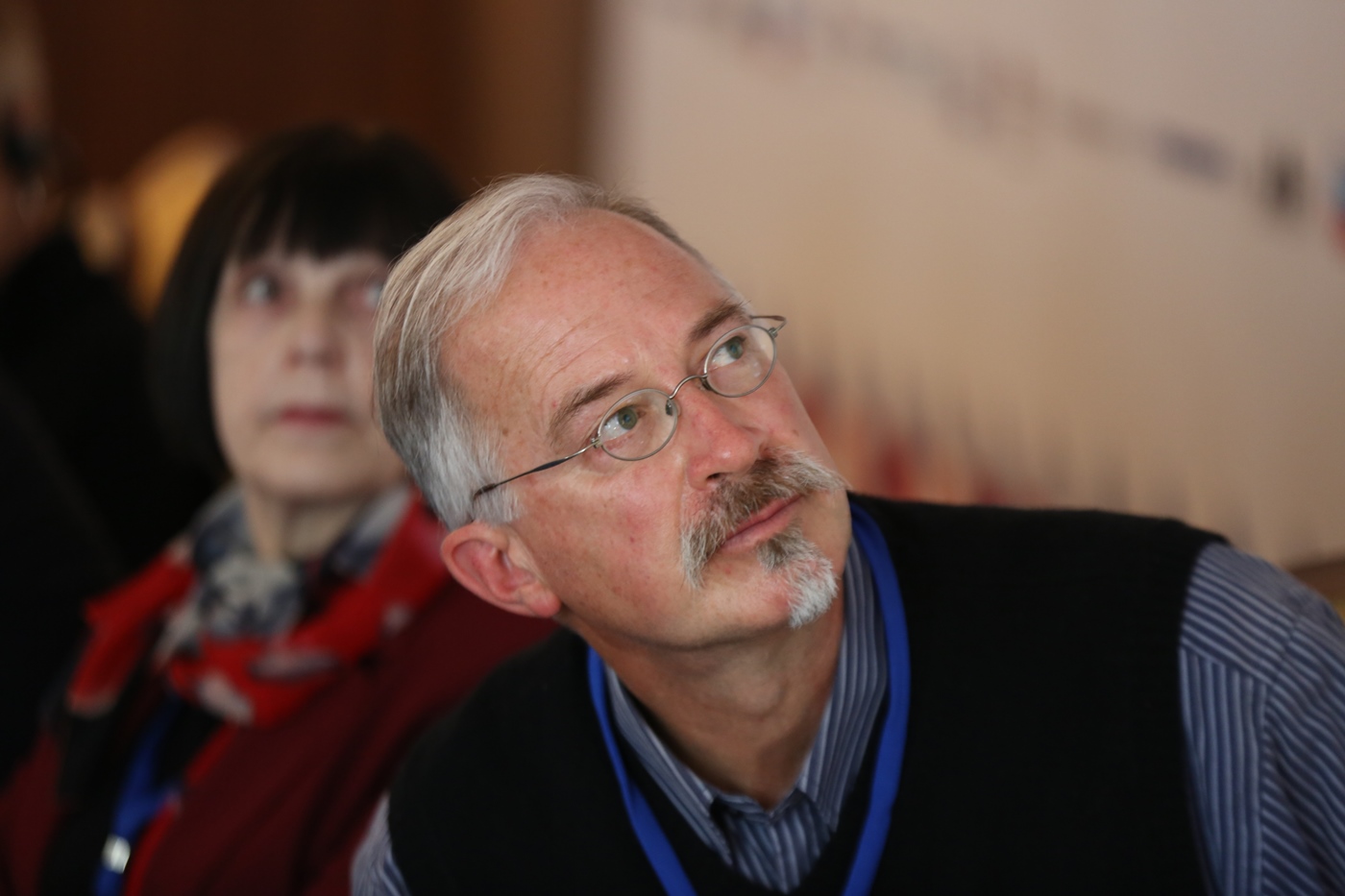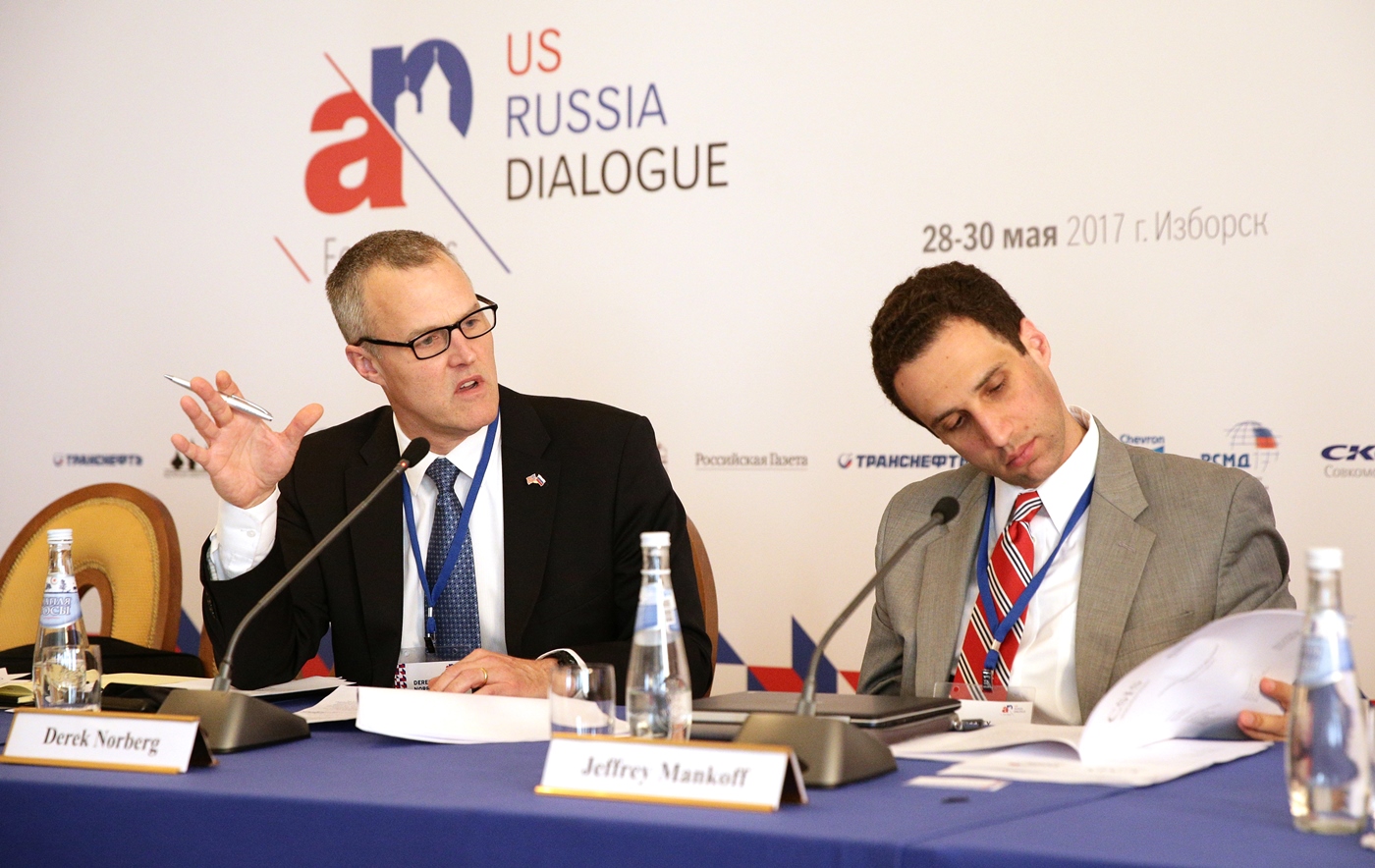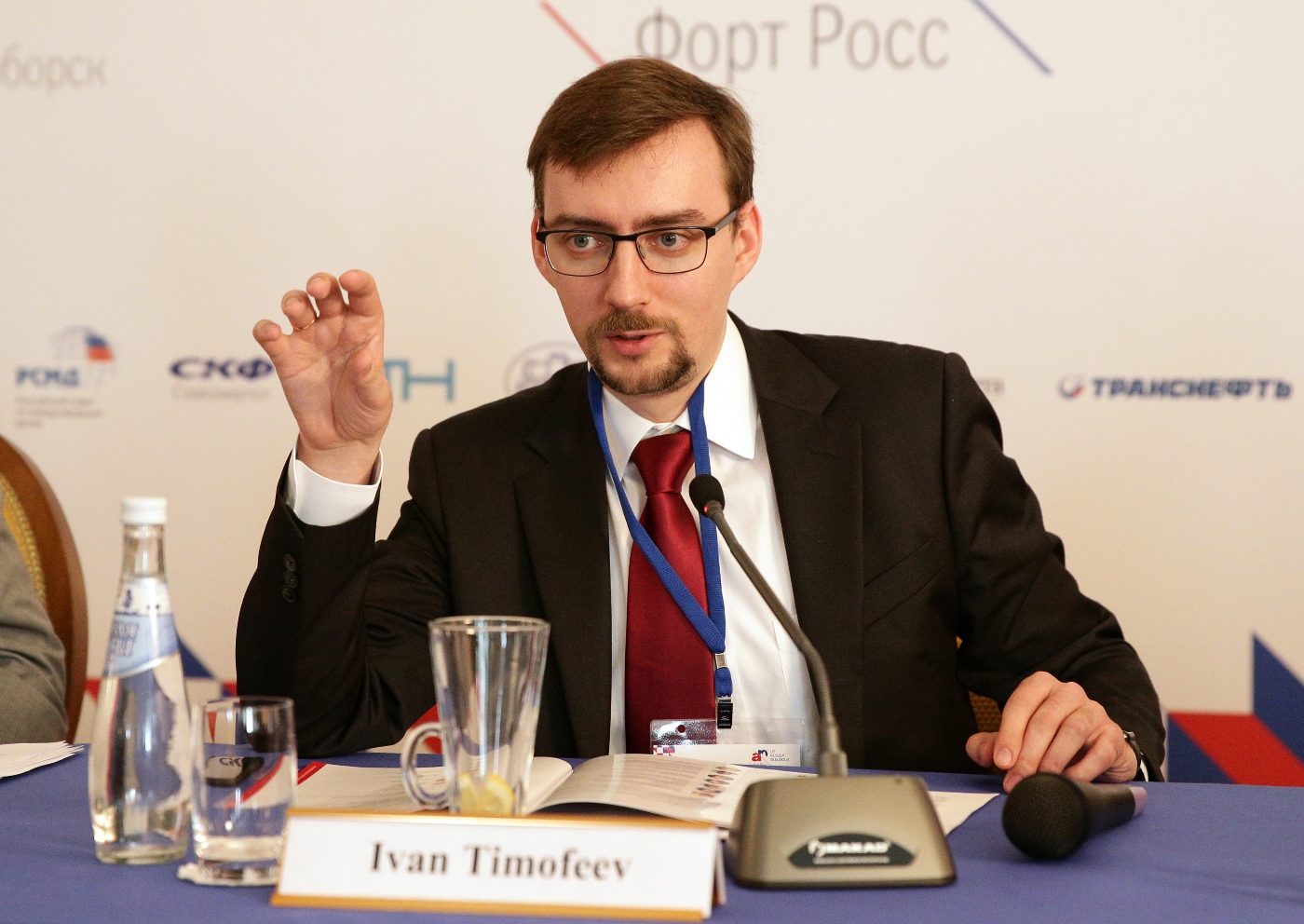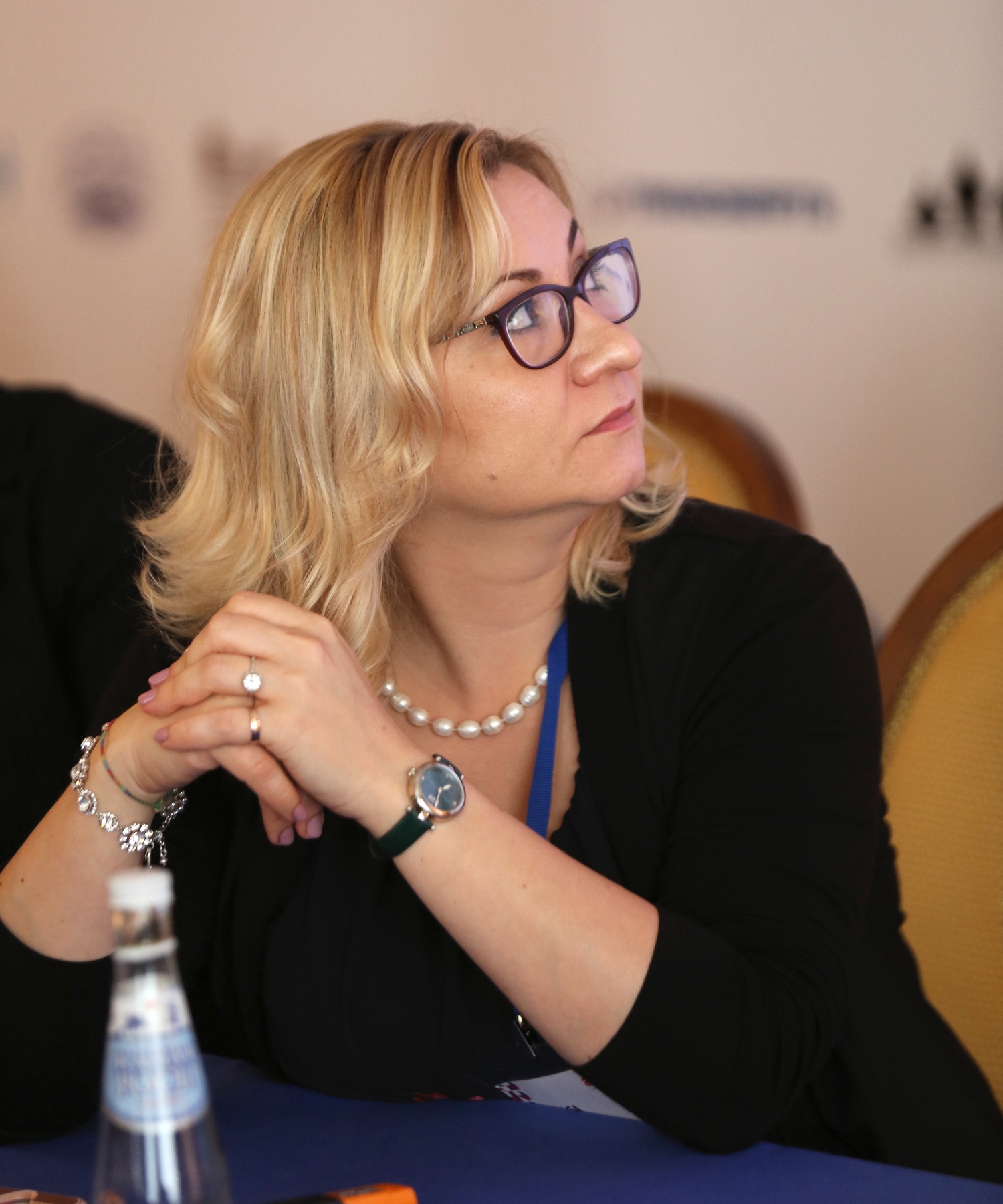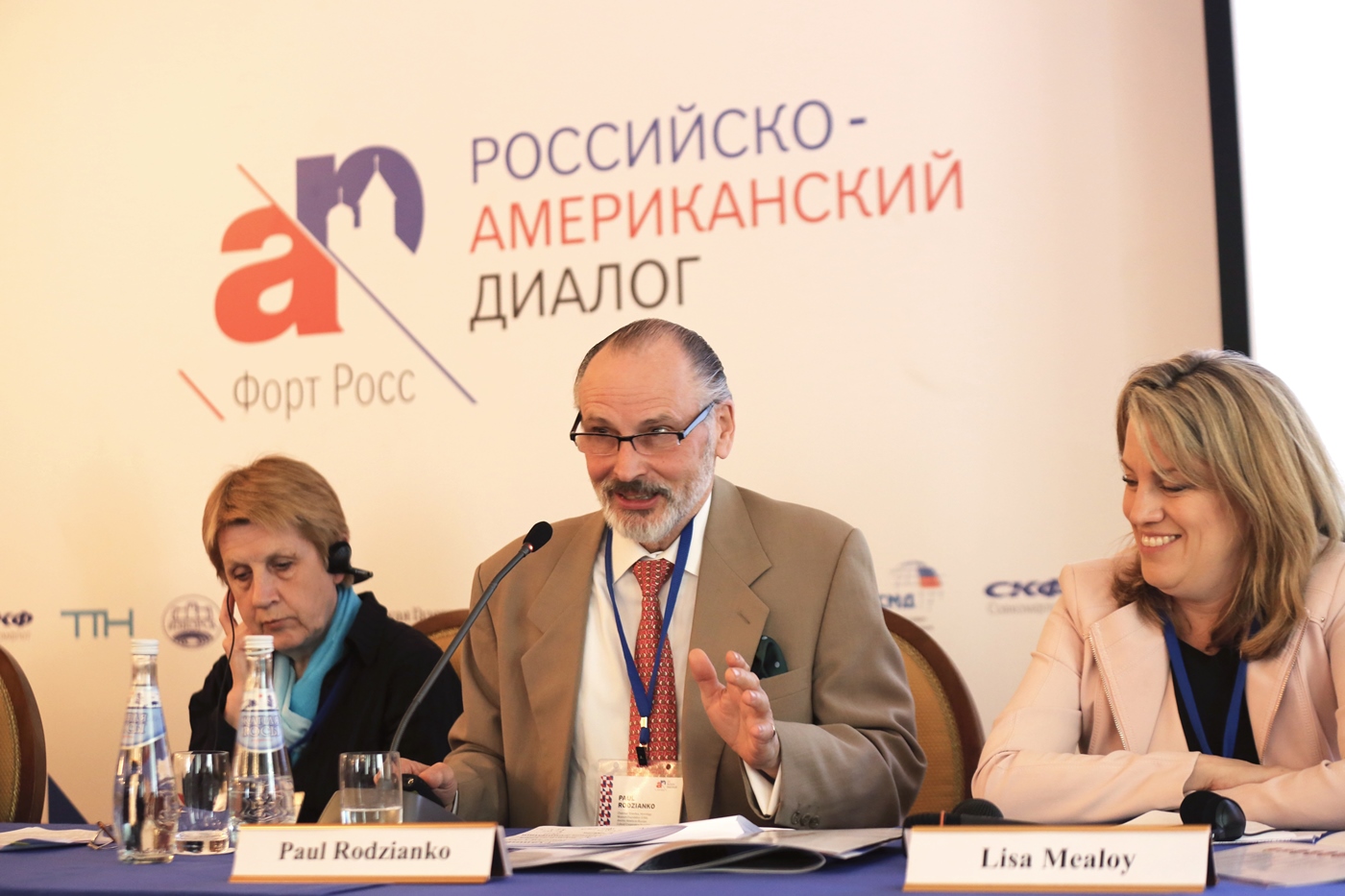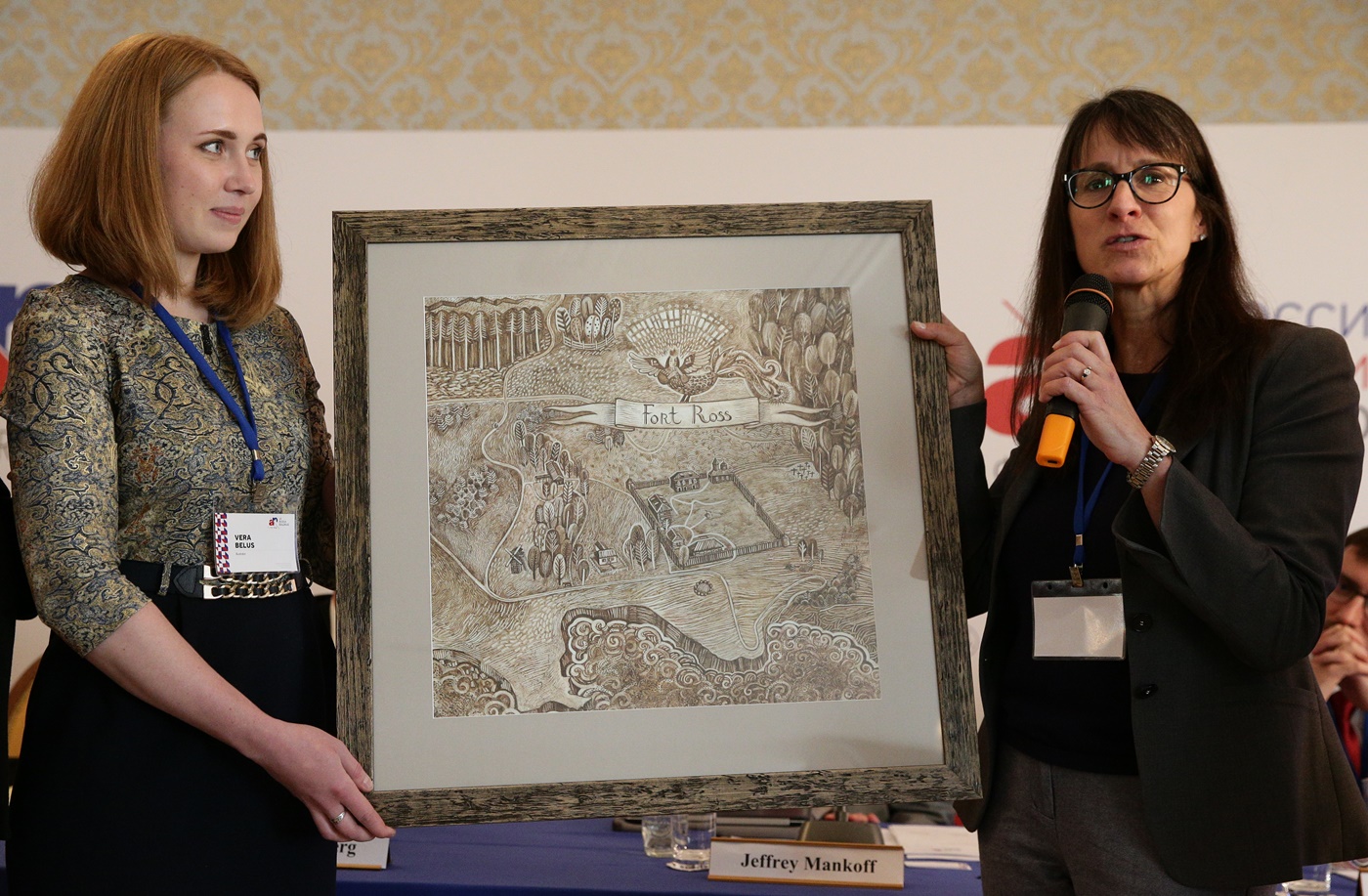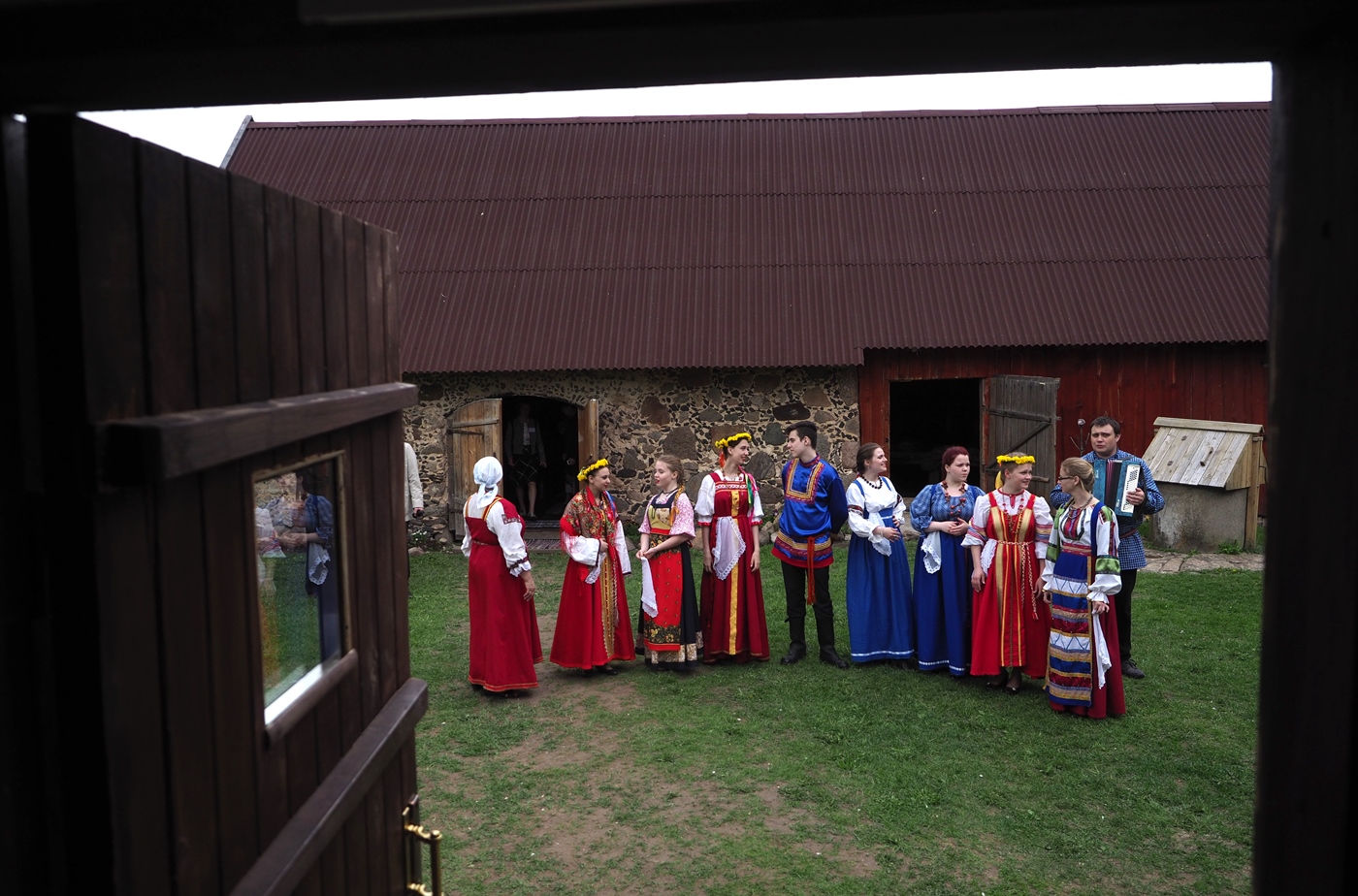U.S. ambassador: We need stronger Moscow-Washington ties
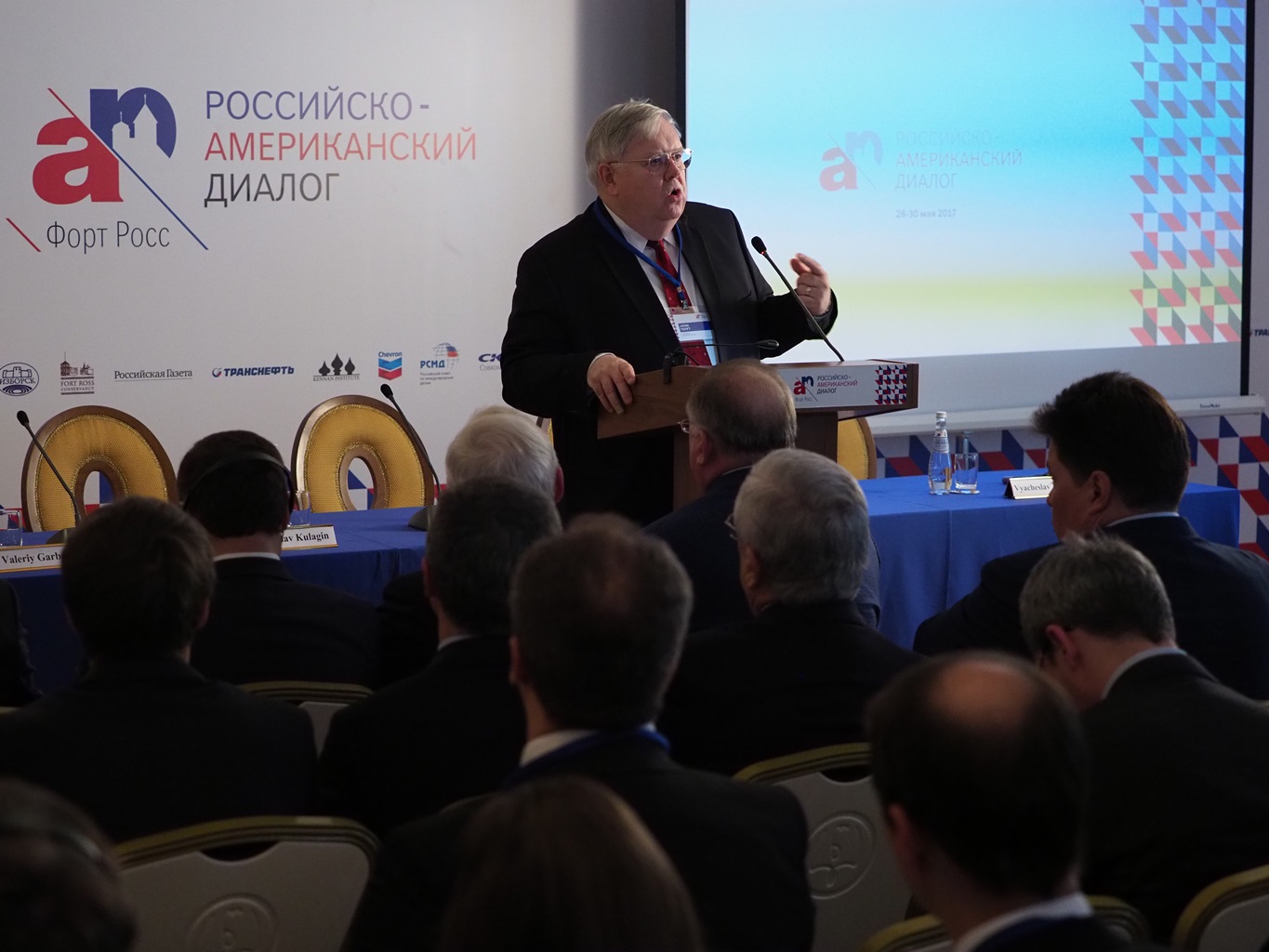
U.S. Ambassador to Russia John Tefft opening the conference.
Ruslan Shamukov U.S. Ambassador to Russia John Tefft opening the conference. / Ruslan Shamukov
U.S. Ambassador to Russia John Tefft opening the conference. / Ruslan Shamukov
The resolution of global issues requires strengthening of mutual understanding between Moscow and Washington. This was stated by U.S. Ambassador John Tefft at the Fort Ross Dialogue forum organized by Rossiyskaya Gazeta at the end of May 2017.
According to the ambassador, “with the global economy developing at unprecedented rates and stakes to resolve global problems higher than ever, such cooperation and understanding acquire special significance. Overall, I would describe Russia-U.S. relations as an almost constant balancing act between cooperation and rivalry.”
Tefft added that during difficult times cultural links help maintain relations, referring to the Fort Ross Dialogue forum as an example.
The event was originally established to support the Russian fortress Fort Ross, which was founded in 1812 by a Russian-American company based on the Pacific coast of California, 80 km from San Francisco. The fort currently holds the status of a historical park. The forum was established in 2012, in honor of the fort’s 200th anniversary, on the initiative of U.S. company Chevron and two Russian companies: The world’s biggest oil pipeline operator Transneft and shipping giant Sovcomflot.
Previously the conference was only organized in America, with the latest held in the fall of 2016 at Stanford University in California. In 2017, the Fort Ross Dialogue was for the first time held in Russia, in the towns Pskov and Izborsk near the country’s western border. “Our cooperation with partners from the Chevron consortium has long grown beyond the boundaries of purely industrial cooperation. We successfully collaborate on a number of cultural, social, and historical projects. Fort Ross is a vivid example,” explained Transneft President Nikolai Tokarev.
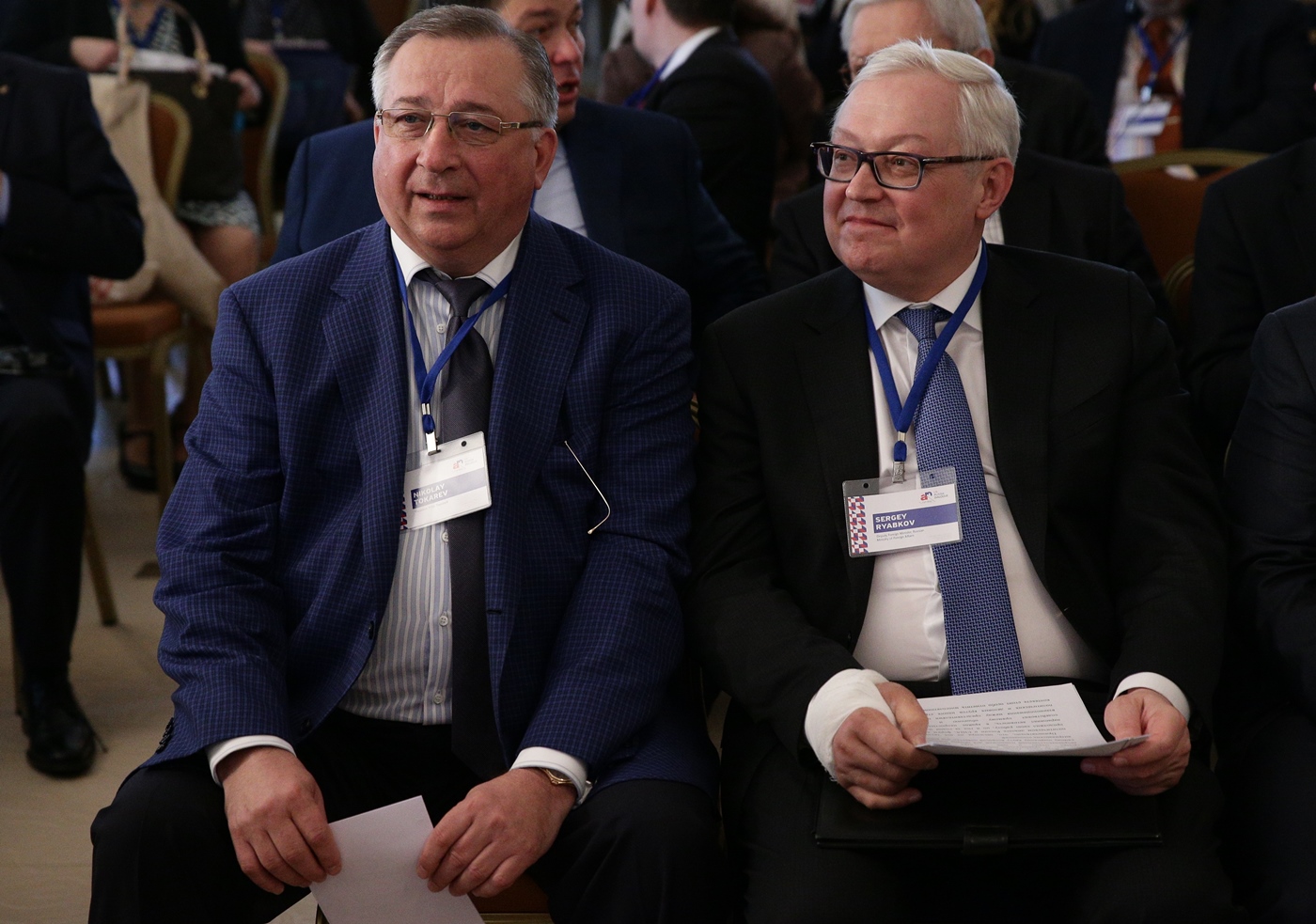 Nikolai Tokarev, President of Transneft, and Sergei Ryabkov, Russian Deputy Foreign Minister. / Mikhail Sinitsyn / RG
Nikolai Tokarev, President of Transneft, and Sergei Ryabkov, Russian Deputy Foreign Minister. / Mikhail Sinitsyn / RG
Museum cooperation
The forum program consisted of two panels. The first was dedicated to cooperation between museums in Russia and the U.S. The second, to important aspects of the global power industry. “Despite the political situation, nothing has changed for us in comparison with, let’s say, the situation six years ago: Those who support Fort Ross in Russia and America are incredibly loyal. Moreover, due to this trust we have the opportunity to recruit more sponsors, and such events really help,” said Sara Sweedler, chairman of the Fort Ross Conservancy. She noted that it was a pleasure to deal with Russian museum representatives and organize joint projects.
The program included a panel discussion coined “Towards each other: Russian trailblazers and American pioneers” - dedicated to the parallel nature of territory exploration in the history of Russia and America.
“U.S.-Russia relations have great prospects as they are two major countries with common borders and areas of mutual interest. These not only include combating terrorism, but also space exploration, climate change, and energy-related issues,” stated Mikhail Shvydkoy, the Russian president’s special envoy on international cultural cooperation. Apart from culture, he says, there are many spheres where the countries’ interests meet. “In the end, pragmatism will prevail: We are two great nations,” he added.
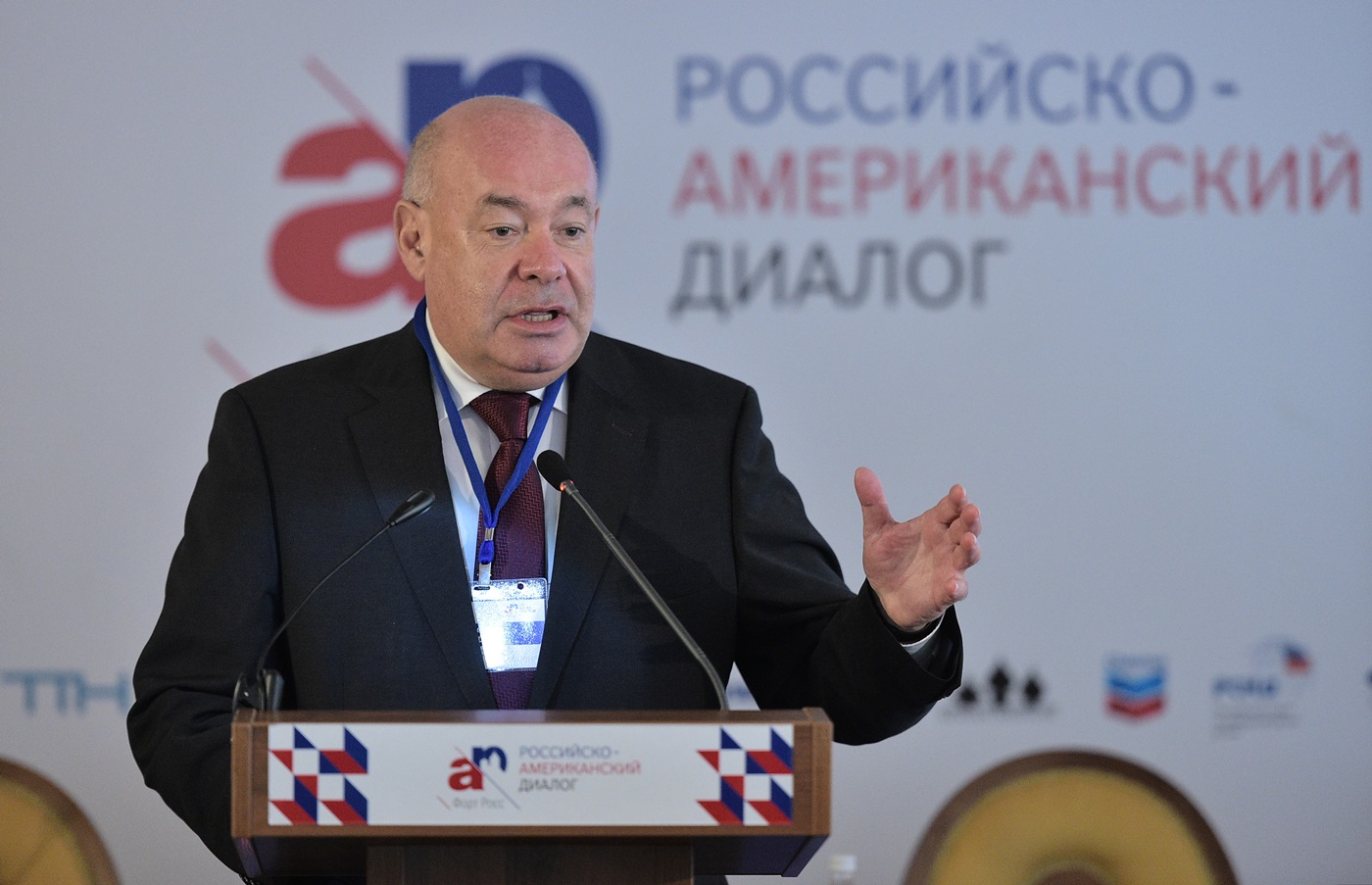 Welcome address by Mikhail Shvydkoy, Russian president’s special envoy on international cultural cooperation. / Mikhail Sinitsyn / RG
Welcome address by Mikhail Shvydkoy, Russian president’s special envoy on international cultural cooperation. / Mikhail Sinitsyn / RG
Energy discussion
Participants of the business conference segment analyzed opportunities for collaboration in the power industry segment with consideration of strained political relations and sanction regimes. Panelists included USRBC head Daniel Russel, the executive secretary of the Russian American Pacific Partnership Derek Norbergand Director of the RAS Institute for American and Canadian Studies Valery Garbuzov.
“The Russian president repeatedly emphasized that we are absolutely open to cooperation along political and all other lines, but that such cooperation should be based on principles of fairness and mutual respect of interests”, noted Russia’s Deputy Minister of Foreign Affairs Sergey Ryabkov. He said that there were many issues on the Russia-U.S. agenda including counter-terrorism, regional conflicts, strategic stability, arms control, and the prevention of distribution of weapons of mass destruction.
The conference program also included a presentation of a joint report prepared by the Russian International Affairs Council (RIAC) and Washington-based Center for Strategic and International Studies (CSIS) entitled “A Roadmap for U.S.-Russia Relations.” Specialists have elaborated a number of steps for their normalization and promised to provide them to Russian and U.S. delegations for preparations toward a possible meeting between presidents Vladimir Putin and Donald Trump during the July 2017 G20 summit in Germany.
If using any of Russia Beyond's content, partly or in full, always provide an active hyperlink to the original material.
Subscribe
to our newsletter!
Get the week's best stories straight to your inbox
